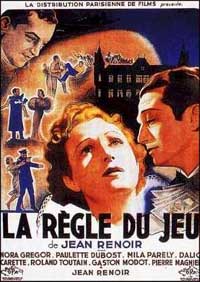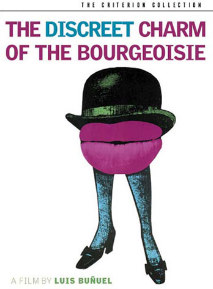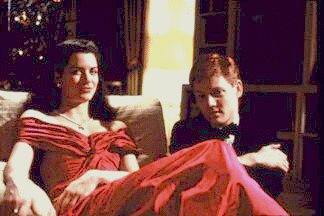Bourgeois Talk
 Larry McMurtry, crotchety old man who wrote Brokeback Mountain and wore jeans to the Academy Awards, has written in depth about the inability of cinema to depict intellectuals and intelligence on-screen. This outlook makes a lot of sense when you consider the common belief that the film medium is inherently made up of visuals and action. As a result, you get intellectuals writing "down," as McMurtry has with Brokeback's inarticulate cowboys and also with films like The Last Picture Show, or as smart actors have, as Marlon Brando was famous for in Streetcar and On the Waterfront. There is something cinematic about inarticulation: characters expressing themselves with their bodies, grunting like cavemen and speaking with their eyes.
Larry McMurtry, crotchety old man who wrote Brokeback Mountain and wore jeans to the Academy Awards, has written in depth about the inability of cinema to depict intellectuals and intelligence on-screen. This outlook makes a lot of sense when you consider the common belief that the film medium is inherently made up of visuals and action. As a result, you get intellectuals writing "down," as McMurtry has with Brokeback's inarticulate cowboys and also with films like The Last Picture Show, or as smart actors have, as Marlon Brando was famous for in Streetcar and On the Waterfront. There is something cinematic about inarticulation: characters expressing themselves with their bodies, grunting like cavemen and speaking with their eyes.
And though films with excessive dialogue have always been looked down upon as too "theatrical," especially when they're based on plays, there is a tradition of movies that have cinematically captured intellectualism - the charm, the banter, the power of ideas, the dilemma of the vanguard.
Many of these films acknowledge the problems with the bourgeoisie if they're not out-and-out denunciations - the "charm" that Bunuel refers to is very much in quotation marks. If the professors, curators, and artists who populate these films are not using their uber-credentials to rationalize the act of murder, then they're wielding their PhD.'s as weapons to make other people feel inferior. They make sure to assert their taste for the things they "should" like rather than the stuff of philistines. There tends to be a perpetual sense of being on the precipace of catastrophe, as if the age of intellect is always facing near-certain doom if not the Apocalypse itself. And of course what is really happening is that these characters are themselves facing their own mortalities, or the end of their esteemed careers (think of Godard's declaration that cinema was dead in 1967 when all that was dead was Godard's talent). But neverthless, many of these films, produced by members of the bourgeoisie after all, cannot help but feel sympathetic to their characters, and cannot help but identify with the intellectual project.
These are the films of "talk," where dialogue is cinematic because the dialogue is part of the action. It is what these people are good at. Whether it's Cary Grant and Kate Hepburn in a classic screwball or Bunuel's troop of irresponsible aristocrats or the bohemian slackers of recent indie fame, these are characters who express themselves with precision, even if they are, in the end, precisely wrong. These are the movies that depict the bourgeoisie, cinematically.
FILMS TO BE SHOWN
1. The Rules of the Game (1939) - dir. Jean Renoir
2. The Philadelphia Story (1940) - dir. George Cukor
3. The Magnificent Ambersons (1942) - dir. Orson Welles
4. Rope (1948) - dir. Alfred Hitchcock
5. The Moon is Blue (1953) - dir. Otto Preminger
6. The Exterminating Angel (1962) - dir. Luis Bunuel
7. Charles Dead or Alive (1969) - dir. Alain Tanner
8. Carnal Knowledge (1971) - dir. Mike Nichols
9. The Discreet Charm of the Bourgeoisie (1972) - dir. Luis Bunuel
10. Scenes from a Marriage (1972) - dir. Ingmar Bergman
11. Chloe in the Afternoon (1972) - dir. Eric Rohmer
WOODY ALLEN DOUBLE FEATURE:
12. Interiors (1978)
13. Manhattan (1979)
BABY BOOMER DOUBLE FEATURE:
14. Return of the Secaucus 7 (1980) - dir. John Sayles
15. The Big Chill (1983) - dir. Lawrence Kasdan
DENYS ARCAND DOUBLE FEATURE:
16. The Decline of the American Empire (1986)
17. The Barbarian Invasions (2003)
18. Crimes & Misdemeanors (1989) - dir. Woody Allen
WHIT STILLMAN TRIPLE FEATURE:
19. Metropolitan (1990)
20. Barcelona (1994)
21. The Last Days of Disco (1998)
22. Husbands & Wives (1992) - dir. Woody Allen
23. Caro Diario (1994) - dir. Nanni Moretti
LINKLATER DOUBLE FEATURE:
24. Before Sunrise/Sunset (1995/2004)
25. The Celebration (1998) - dir. Thomas Vinterberg
26. We Don't Live Here Anymore (2004) - dir. John Curran
27. The Squid & the Whale (2005) - dir. Noah Baumbach
